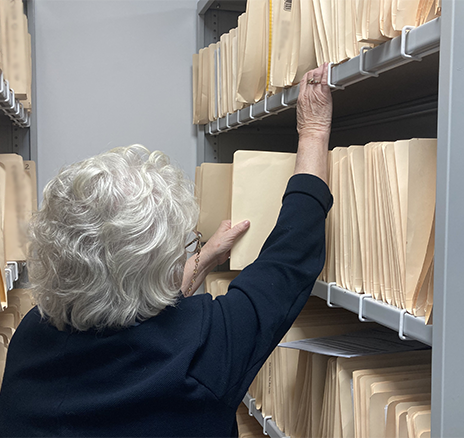Overview
Good government relies on public officials speaking up when they witness, or otherwise become aware of, wrongdoing in the public sector. A strong ‘speak up’ culture that encourages public officials to report wrongdoing is important for ensuring the integrity of the public sector. An integral part of that ‘speak up’ culture is having in place a framework that facilitates public interest reporting of wrongdoing by:
- protecting those who speak up from detriment
- taking active steps to maintain the confidentiality of reports
- imposing duties on agencies who receive reports of wrongdoing to take appropriate action to investigate or otherwise deal with them.
In NSW, that framework is the Public Interest Disclosures Act 2022 (PID Act). The Act provides certain protections for NSW Government employees who report allegations of serious wrongdoing, in accordance with the Act. You should consider reporting wrongdoing through the public interest disclosures system if your concerns are about:
- Corrupt conduct
- Serious maladministration
- Serious and substantial waste
- A failure to comply with the system through which people can access government information (Government Information (Public Access) Act 2009)
- A breach of local government pecuniary interest requirements.
For further information, see the NSW Ombudsman’s Website and Guidelines on ‘What is a public interest disclosure?’
What is a Public Interest Disclosure?
When a public official reports suspected or possible wrongdoing in the public sector, their report will be a public interest disclosure (PID) if it has certain features which are set out in the PID Act. Whenever a report is made that is a PID (that is, it has all the required features of a PID), it is imperative that the recipient quickly recognises that they have received a PID.
The agency must therefore have an effective assessment process in place to ensure it can identify whether a report has the features of a PID, and therefore whether it is a PID. This assessment process is not for an agency to decide to make the report a PID or to decide whether the report should be a PID.
Instead, the assessment process is to identify whether the report is a PID. If an agency has received a report that is a PID (because it has all the features set out in the PID Act), then the report is a PID from the moment it is made, whether or not the agency recognises it as a PID.
Making a Public Interest Disclosure
To receive the protections under the public interest disclosures system, you must disclose information that you honestly believe shows, or tends to show, the wrongdoing that you allege. You must also have reasonable grounds for your belief, this includes documents or other evidence that may support your version of events. Provide any evidence you have, or information about where evidence can be found, in support of your report. If you have documents to support your allegations, try to make them available. This will help the organisation focus on the real issues and fix real problems.
It is important that the information you provide is clear, accurate and factual. Avoid speculation or emotive language: it is likely to divert attention from the real issues. You should not investigate the matter yourself as this could hinder any future official investigation and don't do anything illegal to find evidence.
- Submit a PID - Find Disclosures Officers
- NSW Health - Public Interest Disclosures Policy
- NSW Ombudsman Website - The Public Interest Disclosures Act 2022
- What is a Public Interest Disclosure? - Guideline
Reporting Public Interest Disclosures in the FWLHD
Under the NSW Health Code of Conduct, (s4.3) all staff must report to a more senior member of staff, (or to the appropriate external statutory body) any misconduct by others – including corruption, of which they become aware.
You can report serious wrongdoing to the Chief Executive FWLHD who is our Principal Officer or PID officer. The Internal Auditor FWLHD, is the Disclosures Coordinator for the FWLHD.
If you have reasons to doubt your organisation’s capacity to do something about the wrongdoing you have observed, you can report wrongdoing directly to an investigating authority:
- Serious maladministration to the NSW Ombudsman
- Corrupt conduct to the Independent Commission Against Corruption (ICAC)
- Serious and substantial waste to the NSW Auditor General
- Concerns about the government information system to the Office of Information Commissioner NSW
- Serious wrongdoing in a council (of any of the above categories) to the Office of Local Government
- Serious wrongdoing by a police officer (of any of the above categories) to the NSW Government Police Integrity Commission
- Serious maladministration, corrupt conduct or serious and substantial waste by the NSW Crime Commission or its officers to the Inspector of the Crime Commission.
For further information, read the NSW Ombudsman’s guidelines on Reporting pathways.
What will occur after a Public Interest Disclosure
NSW Health’s Public Interest Disclosures policy sets out the process we follow if you report wrongdoing to the principal officer or someone else who works here. If you report the wrongdoing to an investigating authority, they will detail their processes.
No matter where you report the wrongdoing, the public authority is required to:
- Acknowledge that they have received your disclosure.
- Tell you what they have decided to do in response (within six months of you reporting).
- Keep your identity confidential if possible (for further information, see the NSW Ombudsman’s guideline on Confidentiality).
Protections for Public Interest Disclosures
The PID Act provides a framework for public officials to report serious wrongdoing in the public sector, and to be protected when they do so. Reports can be made to a disclosure officer within their agency, the head of an agency, a person’s manager and to disclosure officers within other agencies, such as integrity agencies.
For more information contact:
Martin Thrift
Internal Auditor and PID Coordinator
Far West Local Health District
Phone (08) 8080 1687
